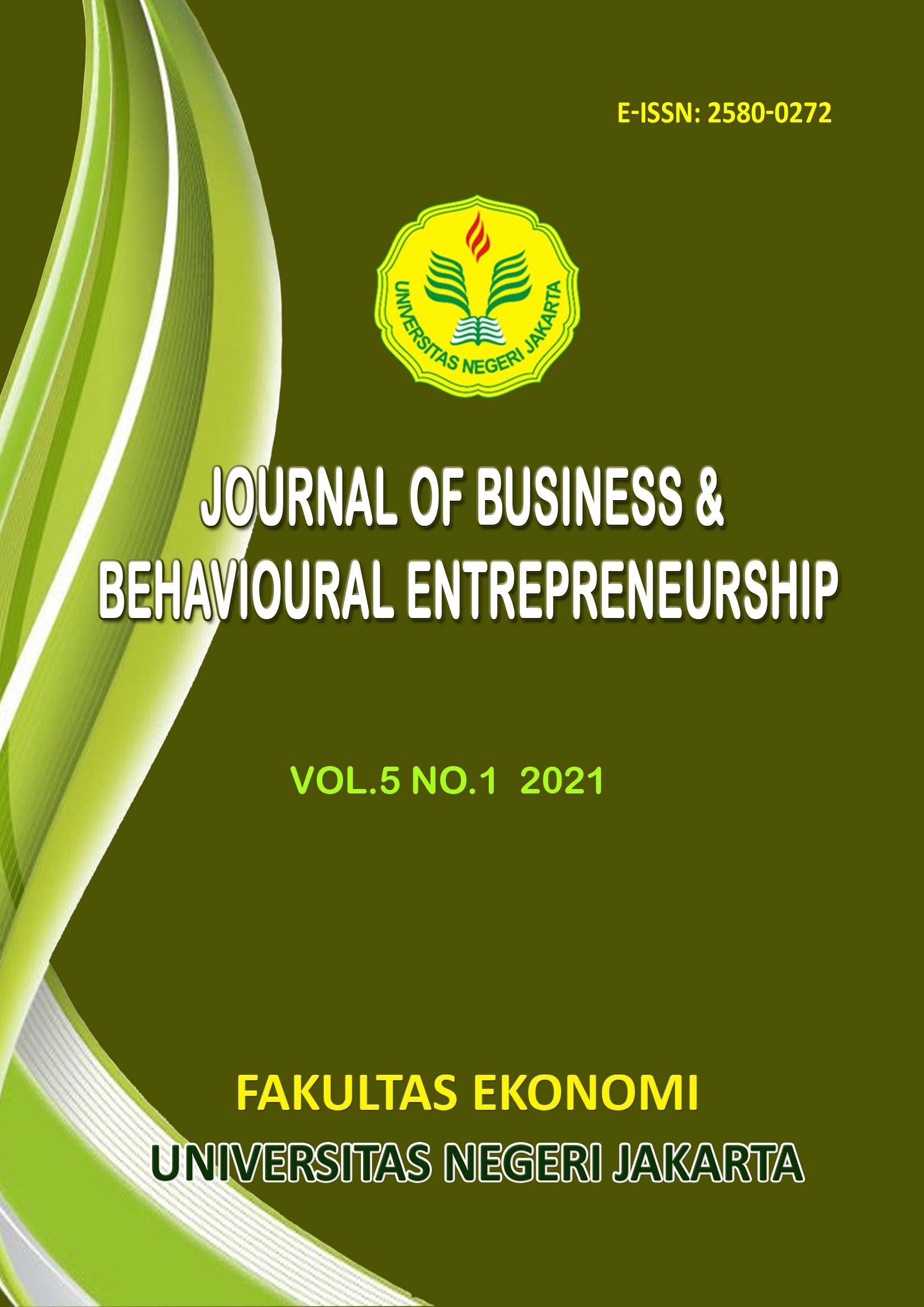Application of Strategic Entrepreneurship Approach in Franchise and Non-franchise Business: A Study in Non-Formal English Education in Indonesia
DOI:
https://doi.org/10.21009/JOBBE.005.1.08Keywords:
entrepreneurial mindset, entrepreneurial culture, entrepreneurial leadership, innovation strategy, competitive advantage, strategic entrepreneurship, franchise, non-franchise, non-formal English education industry, JakartaAbstract
This study further examines the influence of entrepreneurship in the innovation of the non-formal English language education industry (English course) that is oriented towards the achievement of competitive advantage. Entrepreneurship is characterized by entrepreneurial leadership, entrepreneurial culture, and an entrepreneurial mindset. This research approach is undertaken with strategic entrepreneurship. The method used is a quantitative method that begins with an explorative study of the English course industry in DKI Jakarta. The results of the discussion of institutional course data using a franchise system in which entrepreneurial mindset has no significant effect on entrepreneurial leadership and innovation strategy, as well as entrepreneurial culture, has no significant impact on innovation strategy. On the other side, institutional course data using a non-franchise system found that entrepreneurial leadership has no significant effect and is inversely proportional to innovation strategy. This research provides a new repertoire of entrepreneurial fusion and its impact on organizational innovation so that competitive advantage can be achieved. The entrepreneurial typology and innovation of the research results are given in managerial implications as the contribution of this study.









